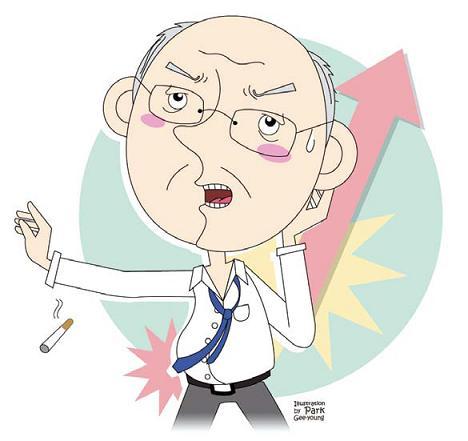
Causes of hypertension
Hypertension can be broadly divided into two types. One of these is called secondary hypertension caused by another concomitant disease, and the other type is essential hypertension, or primary hypertension, where there is no identifiable cause. Approximately 90 percent of hypertension in adults is classified as essential hypertension. This type of hypertension often occurs between the ages of 35 and 55. Eating a salty diet can increase the risk of developing hypertension.
What kidney disease causes hypertension?
One of the common causes of secondary hypertension is kidney disease. Kidney diseases, which cause hypertension, are listed below. It is important to note that untreated hypertension leads to further decline in kidney function, which means that close monitoring and regulation of blood pressure is crucial.
Diabetic kidney disease
In about 30 percent of the patients with either Type I or Type II diabetes, kidney disease occurs as a complication either before or after the onset of diabetes. The presence of sugar in the urine gradually leads to a decline in kidney function in diabetic kidney disease. A common feature is an increase in blood pressure. Therefore, all patients with diabetes should receive a health check annually. This is especially important in patients with hypertension.
Glomerulonephritis
The glomerulus is a small microstructure of the kidneys where the urine is filtered from the blood. Abnormalities in this structure can lead to loss of protein or blood through the urine. This is often associated with hypertension. The blood or protein in the urine is difficult to see with the naked eye and are usually found by routine testing.
Chronic renal failure
There are several causes of chronic renal function, which is a continuous decline in the kidney function. This causes accumulation of fluids and salts in the body, causing hypertension. Most chronic renal failure patients do not experience any symptoms until very late, so routine screening is important for diagnosis.
Renal arterial stenosis
This is a narrowing of the main arteries supplying the kidneys. Chronic renal artery stenosis can damage the kidneys, but in the early stage of the condition, hypertension may be the only diagnostic condition. Although this condition is uncommon, it is characterized by severe hypertension, which is difficult to treat. When the condition is treated, the hypertension significantly improves. Renal arterial stenosis may be suspected in a relatively young person with hypertension who does not respond to medical treatment.
How does hypertension damage the kidneys?
Hypertension makes the small blood vessels of the kidneys harder and thicker. This reduces the blood supply to the kidneys, which affects its function. The kidneys are less able to remove waste products and this leads to the accumulation of salts and fluids in the body. This in turn worsens hypertension, in a vicious cycle.
How is hypertension treated?
When the doctor first identifies hypertension in a patient, he or she will recommend lifestyle modifications. These will include weight loss in overweight patients, a less salty diet and smoking cessation. These lifestyle modifications alone can reduce the blood pressure by approximately 10mmHg. When lifestyle changes are not effective in reducing blood pressure, medical treatments will need to be used. Some people will need several medications to control their blood pressure. For effective treatment, you will still need to modify lifestyle factors while taking your medication. Most people will need lifelong treatment. If there are problems with the kidneys, for example, if there is proteinuria or hematuria, your hypertension will have to be treated more aggressively to prevent further damage to the kidneys.
What do patients with hypertension need to do?
Although you may not currently experience any symptoms, prolonged hypertension can cause cardiovascular disease, kidney disease, and stroke. Therefore, treatment of hypertension is crucial for a healthy older life. Weight loss, eating a less salty diet, smoking cessation is very important to modify hypertension. Other factors include regular exercise and avoiding smoking and drinking alcohol. You should take the medication for your blood pressure if prescribed by your doctor.
Some medicines (also herbal medicines) may interact with antihypertensive drugs, so you should let your doctor know of any medicines that you are currently taking. Because blood pressure tablets need to be taken for a lifetime, some people are reluctant to start taking them. It is important to note that taking medications will not make your hypertension worse. While you are delaying antihypertensive medication, uncontrolled hypertension will damage your organs. Although people may have worries about long-term medication use, antihypertensives were developed for long-term use and are relatively safe.
It is also important that you realize that hypertension is a very treatable condition. Early intervention and continuing treatment for hypertension is effective in preventing kidney disease, stroke and cardiovascular disease for a healthy, long life.
By Lee Jung-eun
The author is a doctor at the department of nephrology at Samsung Medical Center and a professor of Sungkyunkwan University School of Medicine. ―Ed.
-
Articles by Korea Herald



![[KH Explains] Hyundai Motor’s plan for new landmark keeps hitting bumps](http://res.heraldm.com/phpwas/restmb_idxmake.php?idx=644&simg=/content/image/2024/05/13/20240513050626_0.jpg&u=20240513192803)






![[Graphic News] Over 80% of people filing bankruptcy in Seoul in their 50s and older](http://res.heraldm.com/phpwas/restmb_idxmake.php?idx=644&simg=/content/image/2024/05/12/20240512050205_0.gif&u=)
![[Grace Kao] American racism against Stray Kids](http://res.heraldm.com/phpwas/restmb_idxmake.php?idx=644&simg=/content/image/2024/05/13/20240513050827_0.jpg&u=)







![[Today’s K-pop] Zerobaseone sells 1 million albums in 1 day for 3rd time](http://res.heraldm.com/phpwas/restmb_idxmake.php?idx=642&simg=/content/image/2024/05/14/20240514050714_0.jpg&u=)